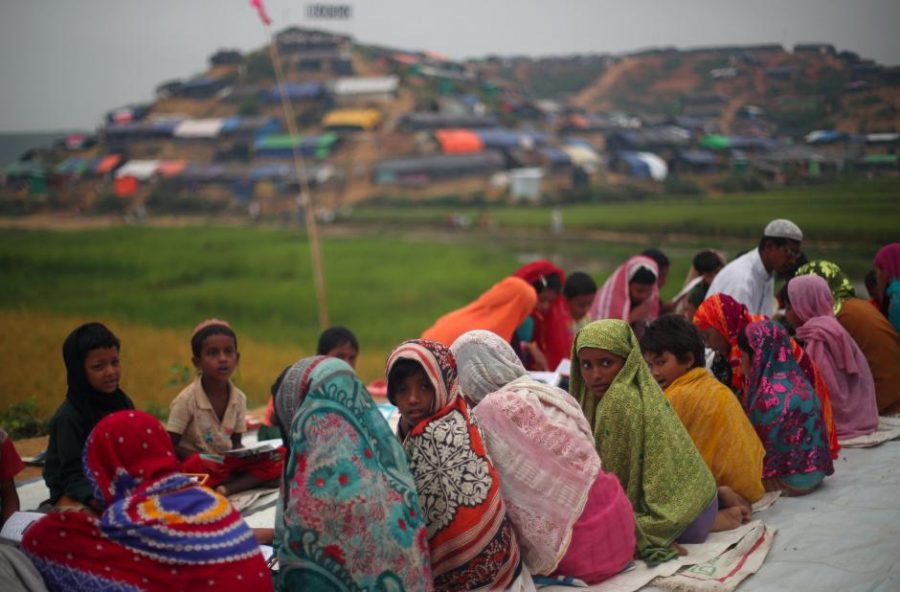The Rohingya Crisis
Rohingya refugee children attend a Quran reading lesson outside of a mosque in Palong Khali refugee camp near Cox’s Bazar, Bangladesh, October 30, 2017. REUTERS/Hannah McKay
RAKHINE, MYANMAR, once a home to a million Rohingya people, is now a ‘Muslim dry’ zone. Life away from home wasn’t exactly what the Rohingya people had in mind when they settled in the villages of Rakhine. In the nation of Myanmar, there are three known ethnic/ religious groups, which are the Buddhists, Hindus and Muslims. Although these groups had lived alongside each other for many years, now this ethnic group, the Rohingya Muslims, are being forced out.
This situation first began when the Rohingya people were being denied citizenship under Myanmar law. This then led to violent acts against them, like village burnings, including attacks against their people by the Buddhist majority (local mobs, etc.) causing them to escape from Myanmar. They sought refuge in their neighboring nation, Bangladesh. The refugee camps there, like the one in Coxs Bazar, offered them a form of sanctuary where men, women and children are able to study the Quran (the Islamic holy book). There are some camps that even offer women a chance to learn how to sew and earn money to support their families. These programs are building confidence and dignity. While they’re promoting women empowerment, they’re also treating everyone for malnutrition among many other things.
Now the question is what else is being done to prevent this ‘ethnic cleanse’? Aside from the U.N., and other countries around the world, trying to persuade the Myanmar government to stop and welcome back this ethnic group, not much else. In order for this damage to be undone, people of higher power should take this as an opportunity to use their platform to inform others worldwide about this issue. Along with the United Kingdom, other nations should also participate in donating whatever money they can, so that Bangladesh can continue to provide more for the Rohingya people. The economic burden is something Bangladesh can’t do alone.

